17+ SAMPLE Tutor Lesson Plan
-
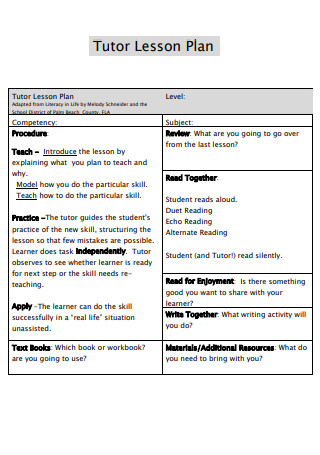
Tutor Lesson Plan
download now -
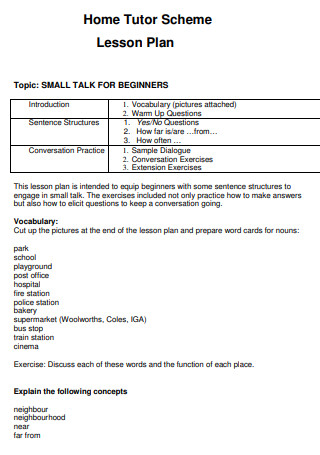
Home Tutor Lesson Plan
download now -
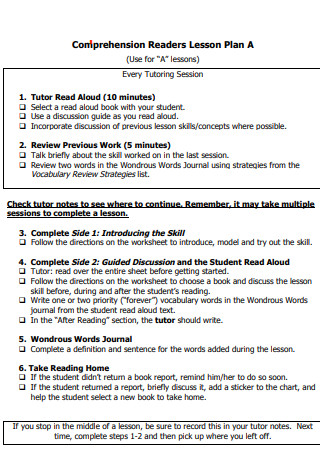
Basic Tutor Lesson Plan
download now -
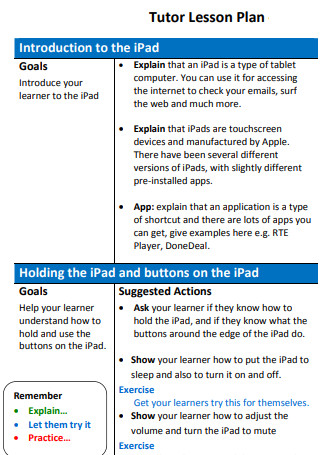
Formal Tutor Lesson Plan
download now -
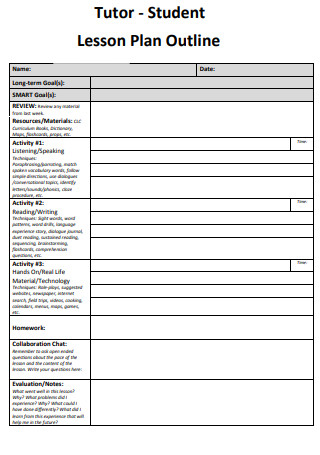
Tutor Student Lesson Plan
download now -
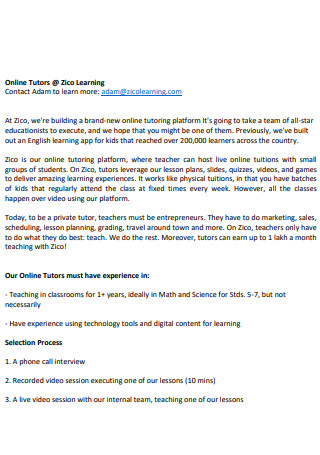
Online Tutor Lesson Plan
download now -
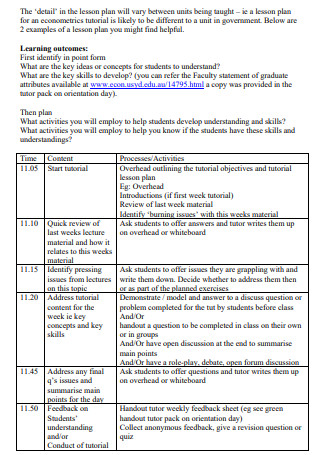
Tutoring Lesson Plan
download now -
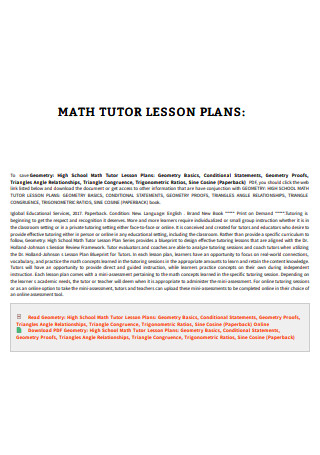
Math Tutor Lesson Plan
download now -
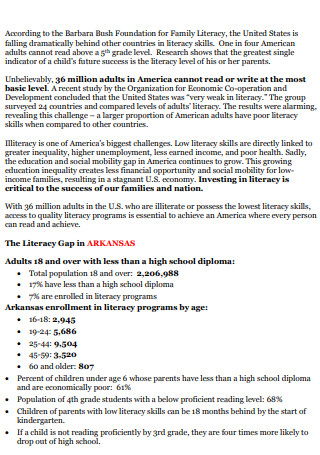
Volunteer Tutor Lesson Plan
download now -
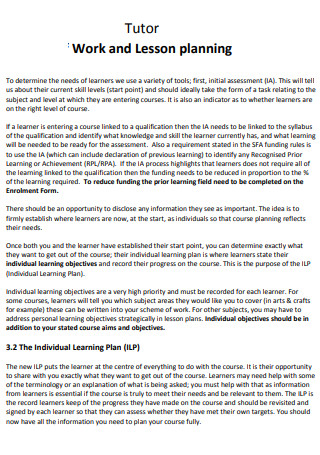
Tutor Work And Lesson Plan
download now -
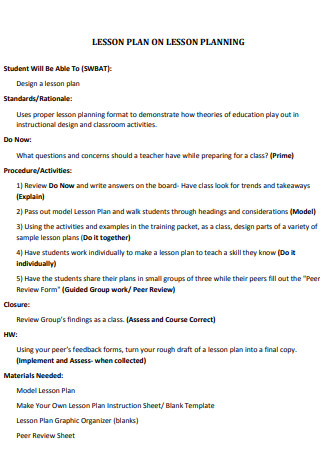
Tutor Training Program Lesson Plan
download now -
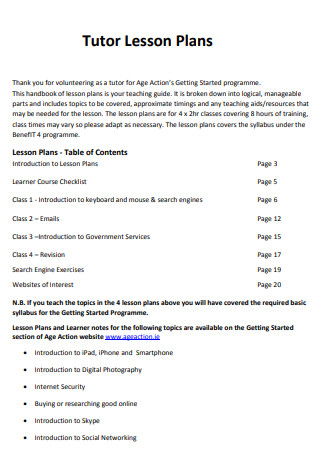
Simple Tutor Lesson Plan
download now -
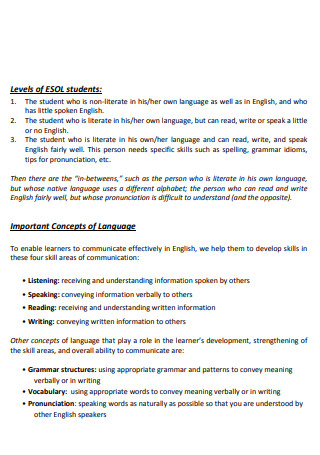
Manual Tutor Lesson Plan
download now -
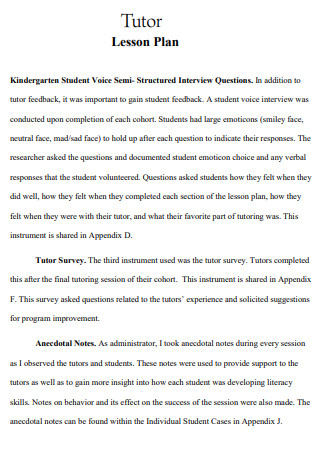
General Tutor Lesson Plan
download now -
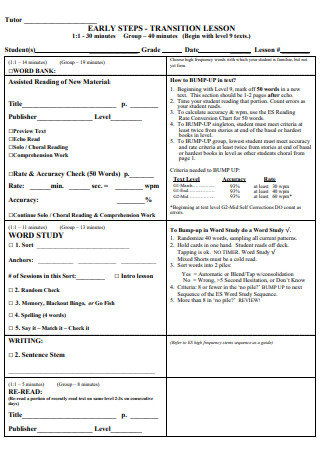
Tutor Binder Lesson Plan
download now -
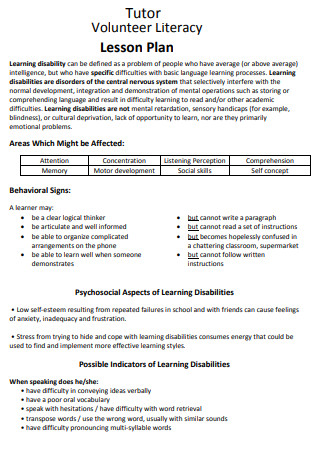
Volunteer Literacy Tutoring Lesson Plan
download now -
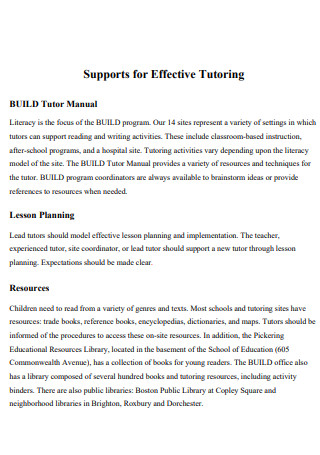
Tutor Site Orientation Lesson Plan
download now -
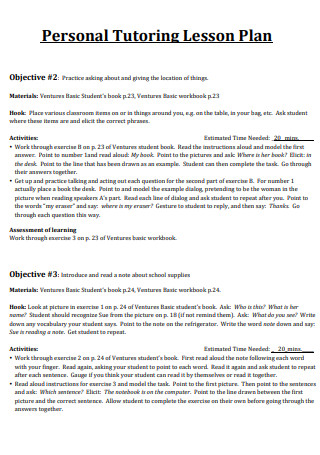
Personal Tutor Lesson Plan
download now
What Is a Tutor Lesson Plan?
A tutor lesson plan is an individualized lesson plan that is meant to supplement and promote the education of a student outside traditional classes. A tutor lesson plan can cover different types of topics and subjects and can come in various structures and flexible formats.
According to an online article by Indeed.com, it is ideal for a tutor to possess ten skills. These must-have tutoring skills are time management, problem solving, leadership, communication, active listening, technical knowledge, confidentiality, empathy, positivity and most of all, patience.
Tips For Tutoring Students
Being a tutor is not an easy job. Just like teachers, professors and instructors, careful preparation is needed for every session or class. Creating lesson plans and other instructional material takes time and effort. But despite the challenges, being a tutor can be a rewarding and fulfilling job. If you are tasked to tutor young children and students, try keeping in mind the following tips to make the learning experience meaningful for both of you.
Types of Tutor Lesson Plans
A tutor lesson plan can come in a variety of forms. The structure and format of the lesson plan is generally dependent on the needs and level of capability of the student. The content of a tutor lesson plan will typically also follow its structure. So if, for example, the lesson plan is designed for a week, the content and subject matter of the tutor lesson plan will contain enough topics that can be tackled within a week. The following examples listed below are some types of tutor lesson plans that can easily be created and replicated.
How to Create a Tutor Lesson Plan
In order to create a tutor lesson plan, you need to prepare the right resources. Depending on the type of format you choose, your lesson plan can either be brief or detailed. Both the structure and content of your tutor lesson plan are equally important. If you want to save time and energy, you can easily use a ready-made tutor lesson plan template and simply modify it according to your needs. Just make sure to keep in mind the following steps as you craft your tutor lesson plan.
Step 1: Identify the Learning Goals
The first step for any lesson plan is always to determine the learning goals or objectives. What are the primary goals that you want your student to achieve? What is the purpose of tutoring them and giving the student a special form of instruction? The learning objectives must be clearly stated and enumerated in your lesson plan. As far as format is concerned, this may serve as the introductory paragraphs of your tutor lesson plan. You want to limit your learning goals to just a couple of bullet points. Avoid listing too many goals that you run the risk of losing sight and focus of what’s actually important.
Step 2: Assess the Resources and Methods
After establishing the learning objectives, you need to evaluate the learning material. What resources are available that will allow you to tutor the student more efficiently? What methodology are you planning to use in your instruction and lesson plans? These are important questions to ask because as a tutor, you need to know what you can offer your student or mentee. Doing a proper assessment of resources and education material can also help manage expectations of the parents or guardians of the student. To illustrate, you may be using a variety of learning mediums and instructional material to creatively convey the lessons to the student. Apart from traditional books and worksheets, you can even incorporate audio visual aids or digital tools to supplement the student’s education.
Step 3: Establish a Schedule
A tutor lesson plan should always have a time element. This means you need to incorporate a timeline or propose a schedule that you and the student will honor throughout the duration of the tutoring. Establishing a schedule is key because it will set the pace and tone of the sessions that will accomplish the learning objectives you have stated in the beginning. For this section, you can prepare a table or chart so as to better organize the tutoring schedule. If you do not want to start from scratch, you can easily use an existing template from above to save time. Using a predesigned template is more convenient and more efficient especially if you are short on time.
Step 4: Prepare an Evaluation Tool
After evaluating the subject material, assessing the resources and forming a schedule, the last requirement you need to come up with is an effective evaluation tool. How will you gauge the understanding and comprehension of your student? You need to prepare a rubric or system of measurement to ensure that what you are teaching and imparting to the student is retained. It is crucial to have a monitoring tool that you can employ to track the progress of the student over the course of your tutoring sessions.
FAQs
How do I write a tutoring lesson plan?
To write a tutoring lesson plan, you first need to identify your learning goals. Afterwards, assess the subject material and plot out the needs and topics as required. You can incorporate a tutoring schedule in your lesson plan as well. Lastly, provide a monitoring or evaluation tool where you can adequately gauge the comprehension and progress of the student.
What are the 5 parts of a lesson plan?
According to an article by the English Language Teaching and Testing Guide, the five main key parts of a lesson plan are the objectives, warm-up, presentation, practice and assessment.
What are tutoring lessons?
Tutoring lessons are formal educational lessons that are meant to supplement traditional classroom lessons. For example, a student may engage the help of a private tutor because the former may find certain subjects more difficult and challenging.
Tutoring can be a rewarding yet challenging job. Thus, it is imperative that a solid and carefully-planned lesson plan is prepared. Browse the sample templates above and easily customize your own tutor lesson plan in minutes!
